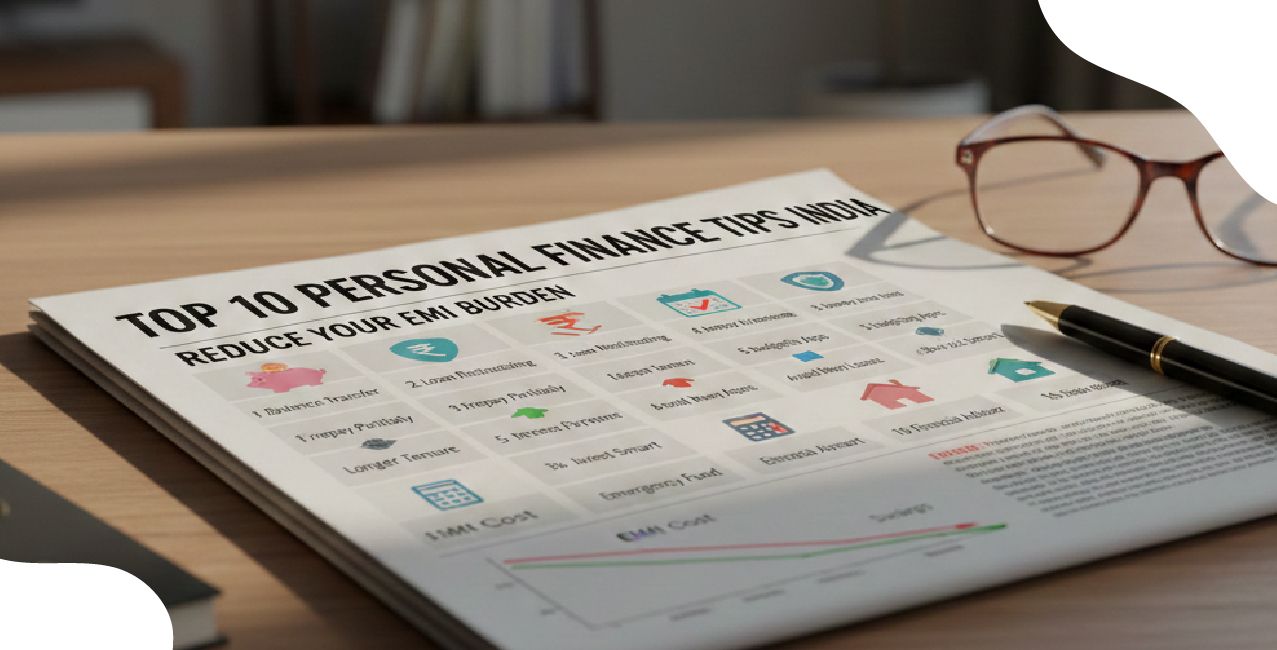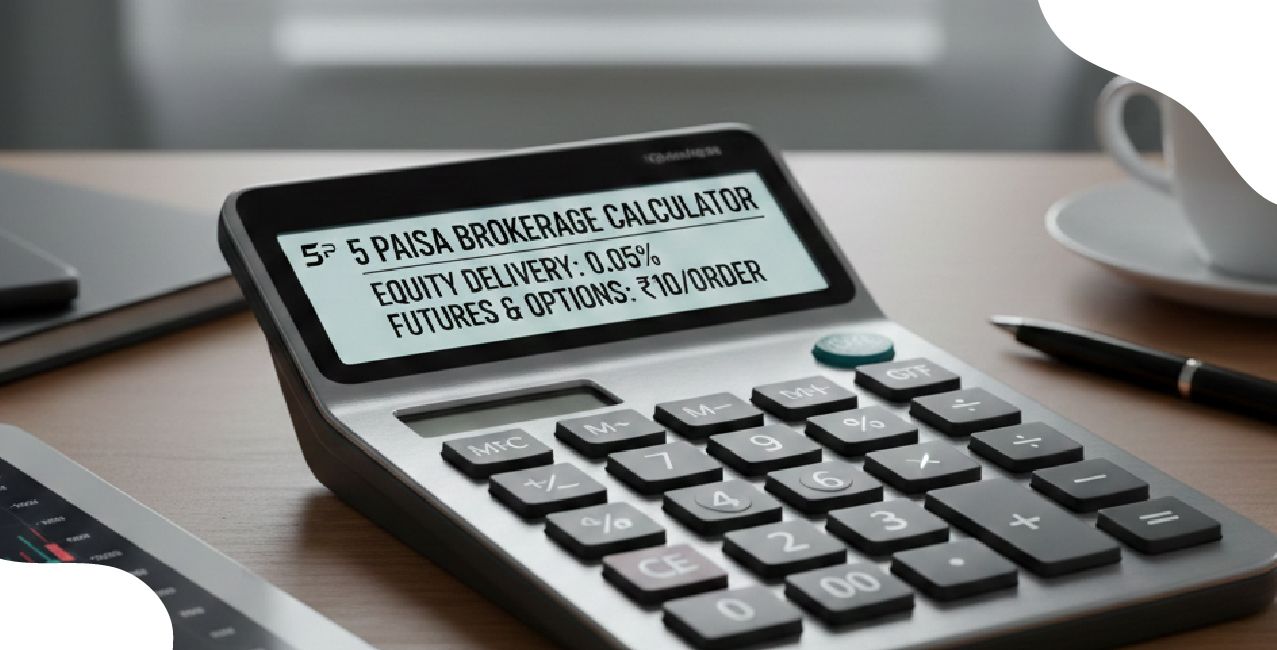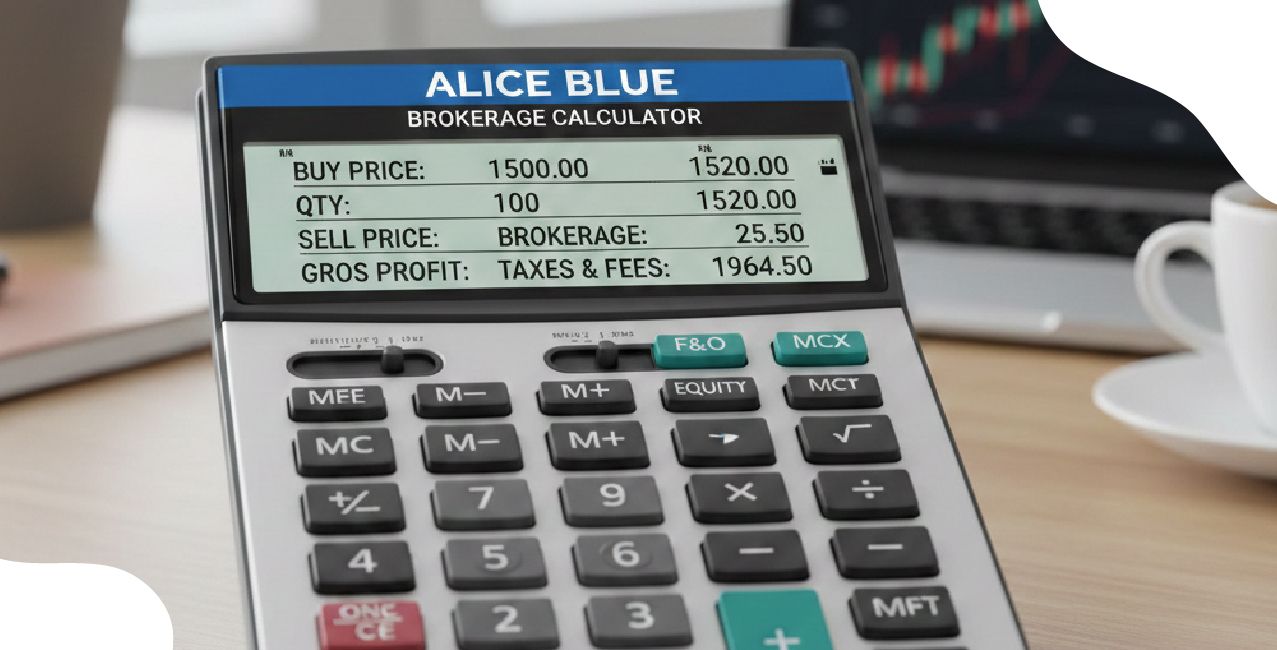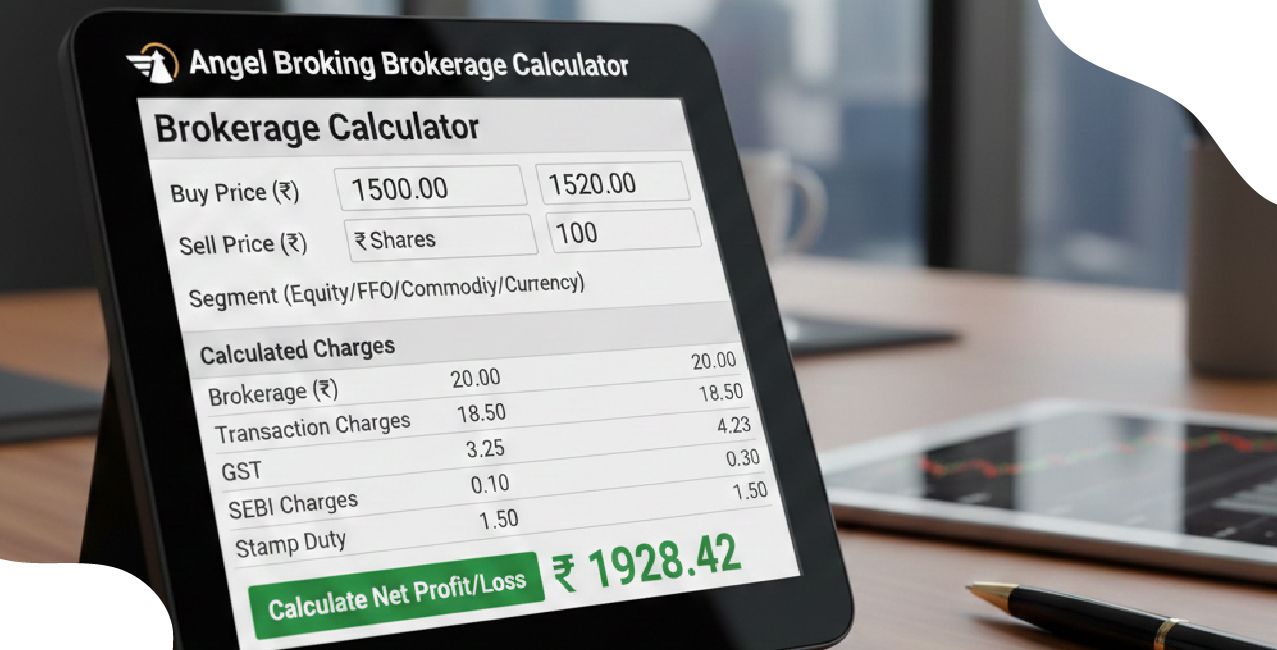Lower EMIs with a Debt Consolidation Loan – Smart Ways to Save

Check Your Loan Eligibility Now
By continuing, you agree to LoansJagat's Credit Report Terms of Use, Terms and Conditions, Privacy Policy, and authorize contact via Call, SMS, Email, or WhatsApp
Isn’t it super stressful and frustrating to check our bank accounts and calculate which EMI will come next? Sometimes, this dreadful routine can get into our heads and make us do some questionable things to the next person we meet. And why does that next person have to be our manager all the time?
It is better if I don’t say anything on this, but what if you can lower your monthly EMIs? Will that not be super easy and relieving? Well, you can do that by consolidating all your debts into one. The EMI of an individual loan may seem small and manageable, but together, it is a mess.
So, instead of struggling with multiple loans and their EMIs, choose a debt consolidation loan. It will not only offer you a lower interest rate, but it will also make monthly payments stress-free.
For Example, Ritu is a 29-year-old marketing executive based in Bengaluru. She earns ₹65,000 every month. A couple of years ago, she took a ₹2 lakh personal loan to renovate her small one-bedroom apartment. When her mother had an unexpected hospital visit, she used her credit card to manage the bills (total amount is ₹1.1 lakh). A few months later, she purchased a washing machine and a microwave on a zero-cost EMI scheme.
While each loan seemed manageable at the time, handling all of them together is now proving to be a monthly challenge. Each comes with a different interest rate, repayment structure, and billing date. By the time she receives her salary, Ritu has to allocate a significant portion of it to pay her EMIs, leaving her little breathing room for essentials or savings.
Here’s a breakdown of Ritu’s current debt situation:
Loan Type | Principal Outstanding | Interest Rate (Annual) | EMI Amount (Monthly) | Due Date |
Personal Loan (3 years) | ₹2,00,000 | 13% | ₹6,752 | 5th of each month |
Credit Card (revolving) | ₹1,10,000 | 36% | ₹4,500 (minimum due) | 15th of each month |
Consumer Durable Loan | ₹40,000 | 18% | ₹1,300 | 25th of each month |
Total Monthly Outgo | — | — | ₹12,552 | — |
Ritu currently spends nearly ₹12,552 every month just to stay up with her debt. That’s almost 20% of her monthly income, and it doesn’t even take into account her rent, groceries, transportation, or any unforeseen expenses. Moreover, because her EMIs fall on different dates, there’s a constant risk of missing one, which can lead to late fees and a drop in her credit score.
So, if your financial situation is like Ritu’s, opt for debt consolidation today. In this blog, we will provide you with the right information you need to transform your financial journey.
How Debt Consolidation Works to Lower Your EMIs
Debt consolidation works on a simple idea, replace multiple high-interest debts with one loan that offers a lower interest rate, a longer repayment period, or both. Instead of managing separate payments for personal loans, credit cards, or consumer durable EMIs, you take a new loan—called a debt consolidation loan—that pays off all your outstanding dues. You are then left with just one EMI to pay every month. This doesn’t just simplify your finances; it also helps in reducing your overall monthly burden.
Read More – How to Pay Off ₹10 Lakh Debt With a Smart Loan Consolidation Plan
What makes debt consolidation attractive is that it offers better control over your repayments. Since this loan usually comes with a fixed interest rate and longer tenure, the monthly EMI becomes more manageable. Some lenders even offer tailored plans in 2025 for salaried professionals, freelancers, and small business owners, keeping in mind their cash flow patterns.
For Example, Ruchika, a 34-year-old salaried professional, was struggling with three different types of debt. Each with its interest rate, due date, and monthly EMI. As her cash flow tightened, keeping up with these scattered payments became stressful and unsustainable. That’s when she opted for a debt consolidation loan from her bank. Here’s how her monthly finances changed:
Aspect | Before Debt Consolidation | After Debt Consolidation |
Total Outstanding Balance | ₹3,50,000 (combined across 3 loans) | ₹3,50,000 |
Interest Rates | Avg. 20% (Credit card: 36%, Personal loan: 18%, Consumer loan: 16%) | Fixed at 11% p.a. (on the entire amount) |
Monthly EMI Burden | ₹12,552 (₹6,000 + ₹4,000 + ₹2,552) | ₹7,609 (one fixed EMI) |
Number of EMIs to Track | 3 separate payments (5th, 15th, 25th) | 1 payment (7th of every month) |
Late Payment Risk | High (frequent delays due to missed deadlines) | Low (only one due date to remember) |
Monthly Savings on EMIs | — | ₹4,943 saved every month |
Cash Flow Management | Chaotic and stressful | Streamlined and predictable |
Credit Score Impact | Gradual decline due to late payments | Improving due to regular, on-time EMI payments |
Who Should Consider a Debt Consolidation Loan in 2025?
Not every borrower needs a debt consolidation loan, but for many, it can be the first step toward financial stability. If you're feeling the weight of multiple EMIs eating into your monthly income, struggling to remember due dates, or watching your credit score dip from frequent delays, it might be time to explore this option.
In 2025, financial institutions are tailoring debt consolidation loans for a broader range of borrowers. Whether you're a salaried employee with too many EMIs, a freelancer juggling unpredictable cash flows, or a young couple managing wedding and home loans at the same time, consolidation can help simplify your payments and reduce interest costs—if used wisely.
Here’s a look at three common borrower profiles who are ideal candidates for consolidation:
- Salaried Professionals with steady incomes but high EMI outgo due to multiple personal loans or credit card balances.
- Freelancers or Gig Workers who face irregular payments and need flexibility in managing their obligations.
- Small Business Owners are using high-interest credit to cover operational costs and falling into a monthly repayment trap.
How Much Can You Actually Save with a Debt Consolidation Loan?
Lower EMIs sound great, but how much do they truly save you? The answer depends on your current interest rates, remaining loan tenures, and how disciplined you are with repayments.
Let’s say a borrower is servicing multiple high-interest loans. These include two personal loans and an active credit card balance. If she chooses to consolidate everything into a single personal loan with a lower rate, not only will her monthly EMI come down, but the overall interest paid over time can also be reduced significantly.
As this example shows, the savings aren't just psychological, they’re real. By reducing the interest rate and increasing the tenure slightly, borrowers can reduce both the monthly burden and the overall cost of debt. Let’s examine the savings with the help of a detailed comparison:
Details | Before Consolidation | After Consolidation |
Loan A (Personal Loan) | ₹1,50,000 at 13% p.a., 2 years remaining (EMI: ₹7,160) | ₹3,00,000 consolidated at 10.5% p.a. for 4 years (EMI: ₹7,751) |
Loan B (Credit Card Dues) | ₹80,000 revolving credit at 36% p.a. (Minimum due: ₹3,000) | — |
Loan C (Retail EMI for Phone & Laptop) | ₹70,000 at 18% p.a., 1.5 years left (EMI: ₹4,300) | — |
Total Debt | ₹3,00,000 | ₹3,00,000 |
Total EMI Outgo (Per Month) | ₹14,460 (7,160 + 3,000 + 4,300) | ₹7,751 |
Total Interest Over Loan Tenure | ₹1,08,000+ (approx. for all loans) | ₹73,000 (approx.) |
Number of Repayment Dates | 3 | 1 |
Savings in EMI Every Month | — | ₹6,709 |
Savings in Interest Over Entire Tenure | — | ₹35,000+ |
What Are the Hidden Costs of a Debt Consolidation Loan?
While the benefits of debt consolidation are compelling, it's essential to look beyond the low EMI and check for hidden charges. Lenders often highlight the low interest rate but may quietly add costs that increase the total loan burden.
Some common costs in 2025 include:
- Processing Fees: Banks usually charge between 1% and 3% of the total loan amount as a non-refundable fee.
- GST on Processing Fees: At 18%, this can raise the total upfront charges significantly.
- Prepayment Penalty: If you try to close your consolidation loan early, expect to pay 2% to 5% on the remaining amount.
- Late Payment Charges: Missing a single EMI can cost ₹500 to ₹1,000 in penalty, and also hurt your credit score.
Here’s a quick breakdown of how these costs can add up:
Charge Type | Details | Impact on Borrower |
Processing Fee | 2% on ₹3,00,000 loan = ₹6,000 | Added to the initial disbursal cost |
GST on Processing Fee | 18% of ₹6,000 = ₹1,080 | Total processing cost = ₹7,080 |
Prepayment Charges | 3% on ₹2,00,000 outstanding (if closed early) = ₹6,000 | Applicable only if the loan is repaid before tenure |
Late EMI Penalty | ₹750 per missed EMI | Can damage credit profile and add to monthly cost |
Bounce Charges (if any) | ₹300–₹500 per transaction | Added for failed auto-debit or ECS instructions |
Common Mistakes to Avoid When Consolidating Your Debt
Many people jump into debt consolidation, assuming it's a quick fix. But if you’re not careful, you could end up replacing one problem with another. The goal of consolidation is to simplify, not stretch your debt into a longer, more expensive liability.
Let’s look at the most frequent errors borrowers make in 2025:
1. Ignoring Your Credit Score
Many borrowers jump into applying for a consolidation loan without first checking their credit score. This is a costly oversight. If your CIBIL score is below 700, you are less likely to qualify for the best interest rates. Instead, you might end up with a high-interest loan, defeating the purpose of consolidation.
For Example, Arvind had ₹3.5 lakh in unpaid dues across various credit cards and an old personal loan. He applied for a debt consolidation loan through an NBFC without first reviewing his credit score. His score turned out to be 655, which made him ineligible for prime lending rates. As a result, he received a loan offer at 18% interest for 3 years, while borrowers with better scores were getting offers around 11–12%.
Details | Scenario A: With 655 Score | Scenario B: With 720+ Score |
Loan Amount | ₹3,50,000 | ₹3,50,000 |
Interest Rate | 18% p.a. | 11% p.a. |
Tenure | 3 years | 3 years |
EMI | ₹12,658 | ₹11,445 |
Total Interest Paid | ₹1,06,688 | ₹63,985 |
Total Repayment | ₹4,56,688 | ₹4,13,985 |
Extra Cost Due to Low Score | — | ₹42,703 saved with good score |
2. Not Comparing Multiple Lenders
Choosing a consolidation loan should be like shopping for an expensive gadget—you must compare different sellers. But many borrowers skip this step and go with the first lender who responds, often ending up with unfavourable terms.
Also Read - From Multiple EMIs to One Magic Payment: A 2025 Guide for Millennials
For Example, Niharika, a teacher in Delhi, accepted a consolidation loan of ₹6 lakh from her primary bank at 13.5% interest. A week later, she found that two fintech lenders were offering the same amount at 10.5% and 11.25%. By not comparing offers initially, she locked herself into a costlier loan.
Lender | Interest Rate | EMI (5 years) | Total Interest | Total Repayment |
Bank (Accepted Loan) | 13.5% p.a. | ₹13,828 | ₹2,29,680 | ₹8,29,680 |
Fintech A | 10.5% p.a. | ₹12,918 | ₹1,74,950 | ₹7,74,950 |
Fintech B | 11.25% p.a. | ₹13,118 | ₹1,86,880 | ₹7,86,880 |
Potential Savings Missed | — | — | ₹42,800 to ₹54,700 | — |
3. Consolidating Debt Without a Repayment Plan in Place
A consolidation loan gives you breathing room, but without a proper repayment plan, it’s easy to fall into a second trap. Some people treat the new loan as “problem solved,” only to mismanage cash flow again.
Conclusion
Many people find themselves struggling with multiple loans, credit cards, personal loans, and car EMIs. All with different due dates and high monthly payments. This scattered repayment structure often leads to missed deadlines and financial stress. Debt consolidation offers a practical solution by combining all these debts into a single, simplified loan with a lower EMI, helping borrowers regain control over their finances. ‘Ab kiska intzaar kr rhe ho?’
About the author

LoansJagat Team
Contributor‘Simplify Finance for Everyone.’ This is the common goal of our team, as we try to explain any topic with relatable examples. From personal to business finance, managing EMIs to becoming debt-free, we do extensive research on each and every parameter, so you don’t have to. Scroll up and have a look at what 15+ years of experience in the BFSI sector looks like.
Subscribe Now
Related Blog Post
Recent Blogs
All Topics
Contents
Quick Apply Loan
Consolidate your debts into one easy EMI.
Takes less than 2 minutes. No paperwork.
10 Lakhs+
Trusted Customers
2000 Cr+
Loans Disbursed
4.7/5
Google Reviews
20+
Banks & NBFCs Offers
Other services mentioned in this article








